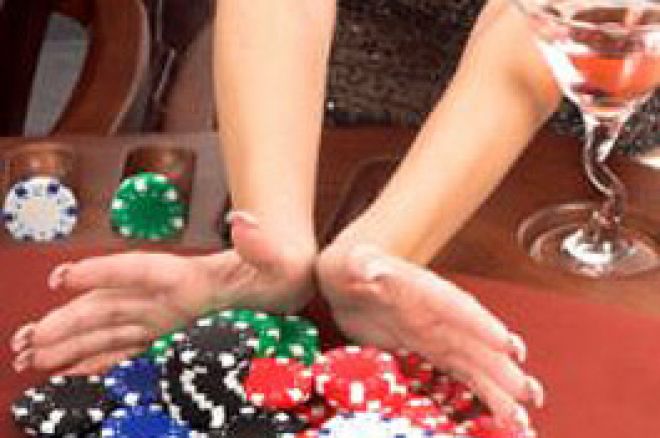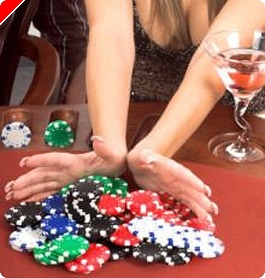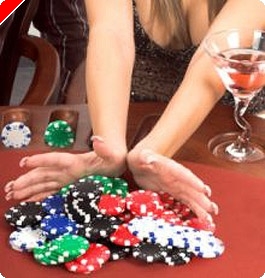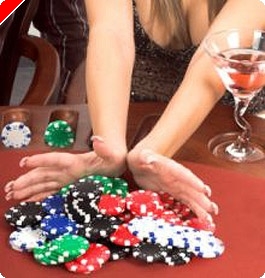Women's Poker Spotlight: Back to Basics

Women have come a long way in poker. There is no doubt that we are strong in numbers behind the scenes and online but the number of women playing live is nowhere close to what it could be. I ask women who I know to be strong players online why they don't try live play, and I am met with the same answers from all of them: "I'm not sure what to do." "I am way too nervous." "What if I mess up?"
In the poker world much time is spent reading and writing about hand analysis, profiles of poker players and tells. We tend to forget that most women and players new to the game have not gained the knowledge of the unwritten laws or familiarity with table etiquette that makes the game run smoothly and fairly.
While it is always best to check with the poker room you are playing at if you have any questions, the following rules and etiquette are standard almost any where you play.
Help Keep the Game Moving
Poker players are inherently impatient people. They like a nice easy flow to the game, with little interruption or set back. Ultimately it is the dealer's responsibility to keep order and keep the game on track but there are many things players can do to keep the game enjoyable for everyone.
Make sure you are in your seat on time. If you are playing in a tournament get there a bit early to find your seat. In most tournaments, especially larger ones, you must be in your seat by the time the initial cards are dealt to each player. If you are not in your seat, your cards are mucked automatically.
Following the play at the table is another way to help keep the game on track. Tournaments are long enough without having to wait every hand for someone to be told it is their turn to bet or have questions asked about the hand that easily could have been answered if the player had been paying attention.
Don't Offer Too Much Information
Not only are poker players impatient, they are devious. Their sole concern is your stack of chips and how they can acquire it. Giving them any information that they haven't earned isn't only against the rules, it will hurt you in the long run.
I think one of the most important rules of live poker is not discussing the hand while it is in progress. Announcing that you folded 10-3 with a flop of 10-10-3 gives valuable information to those still in the hand. It lets them know that the odds are against another player having a full house or four of a kind.
If you show one player your cards when you are out of a hand, the other players are also entitled to see your cards. In general no one will ask to see them but if you show repeatedly someone might call you to the carpet. While many times what you fold is of little consequence to other players, it can give those that you show some insight to how you play, what you will fold and what type of player you are. To a seasoned poker player that little bit of information is enough to change the outcome of the game in their favor.
Part of poker is making decisions quickly. Acting on those decisions prematurely, however, can alter the outcome of the hand and, ultimately, your end result. Grabbing for chips, throwing in your hand or announcing your intentions out of turn can give others clues as to how to play the hand as well as give other players information about your mannerisms and poker tells.
Protect Your Cards and Your Chips
Keep your cards close to you at all times until it is your turn and you choose to fold. If mucked cards touch yours or the dealer accidentally brings them into the muck, your cards are dead. Your pocket kings can go down the drain simply by you not keeping your hands on them. Most players use card protectors or charms to put on top of their cards to keep them separate from the other cards.
Always protect your chips. They might only be tiny pieces of clay, but never forget their value and what they represent in a tournament. Keep them neat and piled behind your cards with all of the denominations showing, largest denominations up front. If your chips are all over the place it is easy for the dealer to mistake them as part of the pot or worse yet a player to mistake them for theirs. If your chips are neat and piled there can be no question about where they belong.
This is only a small gathering of the rules and etiquette that are expected at the tables. If you are interested in more official rules of poker visit the Poker Tournament Directors site at www.pokertda.com . The most important thing is to get out there and play!








